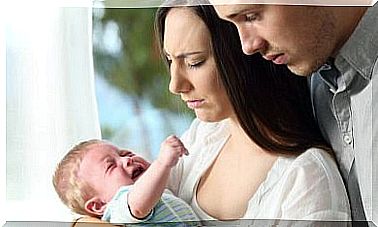6 Emotional Wounds We Bring From Childhood
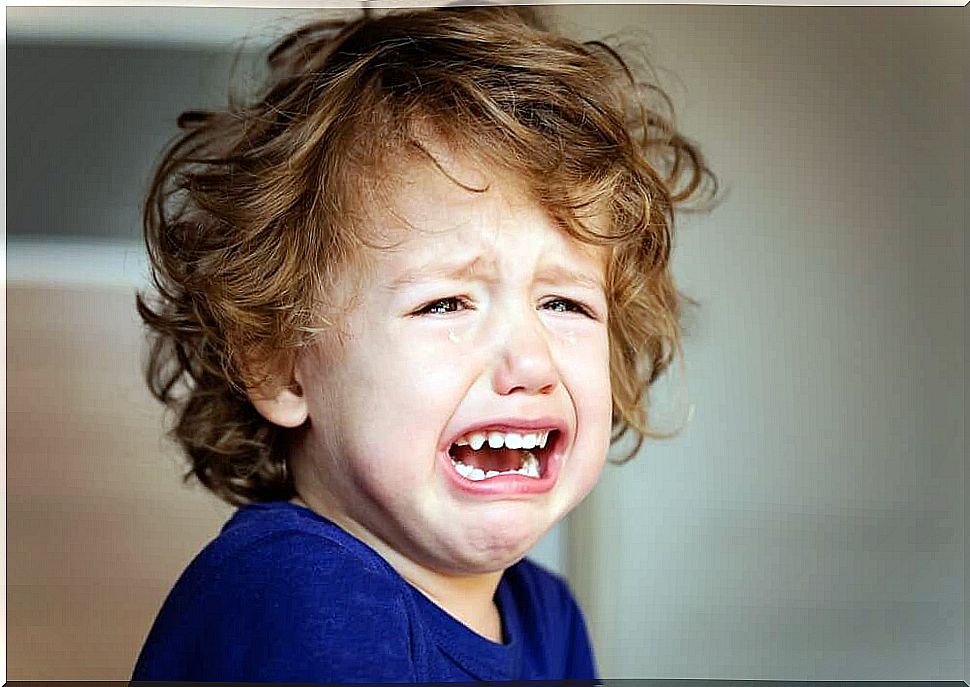
Do we carry emotional wounds since we were little? Some negative childhood experiences can affect our mental health as we grow up and later into adulthood.
The experiences we have as children are a determining factor in the construction of our adult personality. In childhood, we define in part who we are and how we approach life.
The emotional wounds we bring from childhood are the product of bad experiences that marked this phase. Although such events took place a long time ago, they leave an imprint on our lives, and therefore into adulthood we continue to feel the fears characteristic of that time.
For this reason, it is very important to help our children to control their emotions and overcome their fears. As parents, you need to understand that it’s all about working as a team.
What are the emotional wounds we bring from childhood?
Most of the psychological problems we have have their origins in the emotional traumas we suffered in childhood. Our personality and attitude towards the different situations we face in life are highly influenced by the experiences we live during our first years of life.
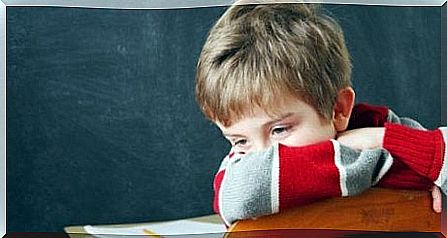
If these experiences were traumatic and caused great suffering, these fears are more likely to accompany us into adulthood. Likewise, when we have to face certain stressful situations, we react in a childish way.
If we have lived through moments of crisis in childhood, our inner child who suffered humiliation, who was betrayed, or who had low self-esteem is externalized and highlights our deepest fears. Therefore, it is normal for the emotional wounds we have had since childhood to persist in our interior and remain in force in our present.
1. Humiliation
If at any time classmates, family members, or relatives scoffed at, or disapproved of, a trait or attitude during the person’s childhood, it may have generated an introverted personality and serious complexes.
The child victim of destructive criticism may have become a ruthless person who wants others to suffer what he suffered, according to information from the publication Unseen wounds: The contribution of psychological maltreatment to children and adolescent mental health and risk outcomes () .
2. Fear of abandonment
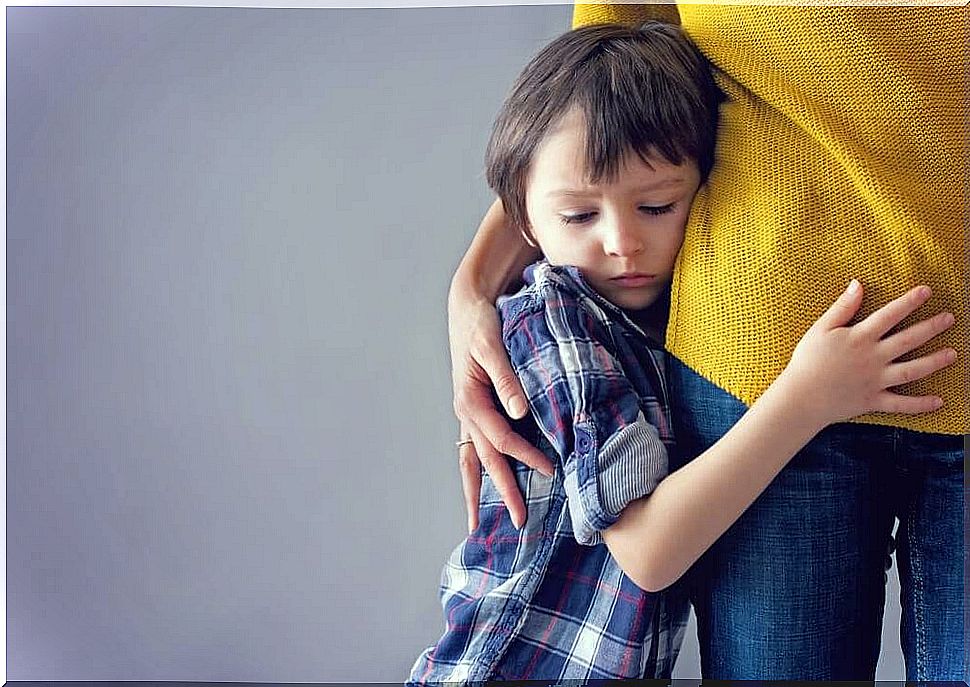
Children who grew up in constant neglect seek to make up for this lack in adulthood. This is why they often abandon their partners or projects early, for fear of being abandoned first.
Something like “I’ll leave you before you leave me”, “If you go, you better not come back” or “Since no one supports me, why should I put up with this?” . An article in BMJ Journals states that those who are afraid of abandonment must work through their fear of rejection, individual barriers, loneliness and, above all, physical contact.
3. Self-esteem issues
Good self-esteem develops during childhood, especially in the family nucleus. If parents are not able to accept their children and love them as they are, the children will feel that they need to change to meet our expectations.
Every child has characteristics and abilities that make them unique and different. When your child talks about an achievement that makes him feel proud of himself, express his joy with a loving gesture. That way, he will know that he is loved and valued by his parents. This will increase his self-esteem and make him feel good about himself.
People with low self-esteem are characterized by being indecisive, lazy, discouraged, pessimistic and easily embarrassed. For this reason, promoting good self-esteem in our children is a fundamental task throughout their growth.
4. Injustice
When a child is constantly unfairly reprimanded or exaggerated for his faults, he becomes insecure. Injustice is one of the emotional wounds that we have since childhood and that can transform us into people with a very negative outlook on life.
Furthermore, those who were not treated fairly during childhood disproportionately criticize everyone around them, as a mirror-effect of what they experienced.
5. Separation anxiety
During childhood, the fear of being alone or away from parents makes an adult in need of affection who would do anything for a show of love. People who have separation anxiety are characterized by being shy, insecure, and submissive.
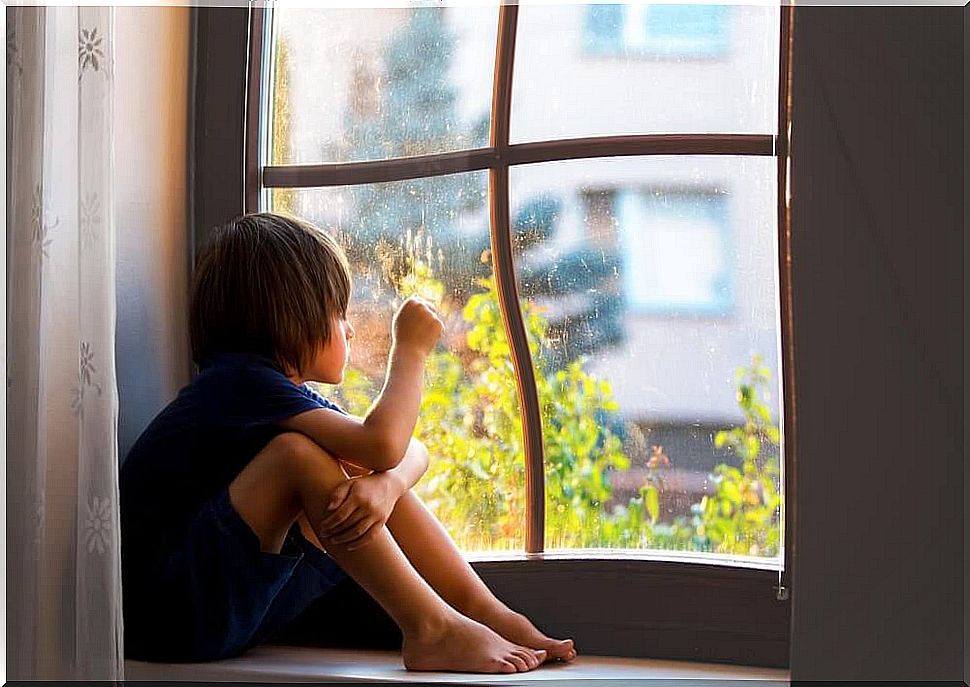
6. Betrayal
If a father does not keep the promises he makes to his son and his expectations are not fulfilled, these people end up becoming suspicious and unsociable. Respect and loyalty to children will make them safer adults in the future. To deceive a child is to take away their naivety and replace it with malice.
The emotional wounds we bring from childhood condition us
The emotional wounds we carry from childhood determine our way of seeing and facing life. If we don’t want our children to grow up with some emotional trauma, we need to pay as much attention to their upbringing as possible. It is important to take an active role during your growth and not delegate this responsibility to others.
We must remember that each child is unique and develops their skills at their own pace. That’s why we should avoid comparing with friends or classmates. If we want to change some behavior in our children, we must invite them to reflect on their behavior, but not unjustly punish them.
Finally, it is the duty of all parents to maintain open communication with their children. That way they will feel safe telling them about their fears, fears or anything that worries them. So they will look for a solution to these problems early on.




